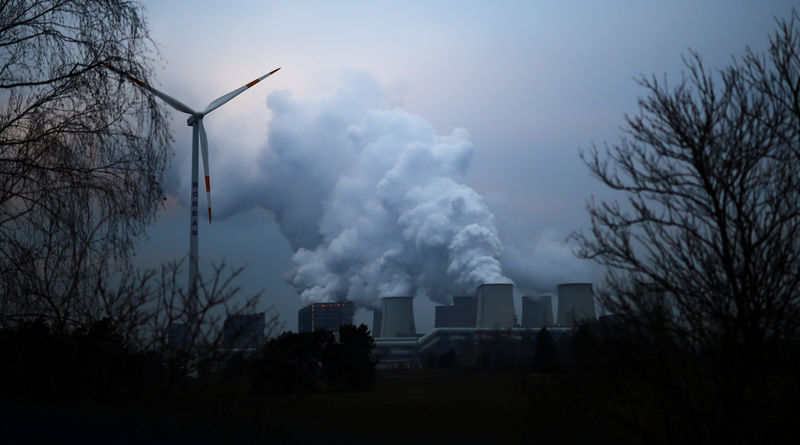BERLIN (Reuters) - Germany's phasing out of coal-fired power stations could be delayed beyond 2038 if the deadline creates problems for the security of electricity supply, a senior legislator in Chancellor Angela Merkel's party said.
The phase-out, proposed last Saturday by a commission tasked with mapping out Germany's transition to a more environmentally friendly low-carbon economy, drew criticism from some in industry who fear the impact of higher energy prices.
But in remarks that appeared aimed at the right of a party not always comfortable with Merkel's centrist approach, Ralph Brinkhaus, chair of the conservative benches in parliament, said it was crucial not to be "dogmatic" in pursuing a goal that was widely accepted.
"Energy supply security must be guaranteed," he told Welt am Sonntag newspaper. "If it is endangered, we should be free to do another round and address that, without abandoning the path we've chosen. There's no reason to be dogmatic about this."
Brinkhaus, from the Christian Democrats' (CDU) most pro-business wing, last year toppled a Merkel ally in the race for the influential parliamentary leader post, precipitating the sequence of events that led to Merkel resigning as party leader and announcing that this would be her last term as chancellor.
That sparked a fight for the soul of the party, whose members have chafed at the centrist course that Merkel plotted over the 14 years of her chancellorship, during which time she has often seemed closer to leftists and Greens than some in her own party.
While her ally Annegret Kramp-Karrenbauer's narrow victory in the race to succeed her as party leader was seen as a win for her centrist vision, Brinkhaus's remarks are a reminder that the party's right has not gone away as the CDU gears up for a series of tough European and regional elections.
The coal commission unveiled its hard-won compromise after marathon talks early last Saturday, proposing to shut 12.7 GW of coal capacity by 2020 and promised 40 billion euros to help regions affected by the end of coal mining.
Brinkhaus also called in the interview for a rethink on government spending. "Do we have too many regulations or even a nanny state?" he asked.

An INSA poll for Bild newspaper on Saturday showed that the CDU is still by far the most popular party on 30 percent. But a disappointing election year could yet re-open the internal party war.